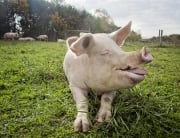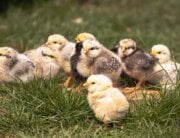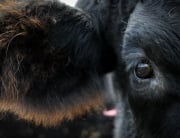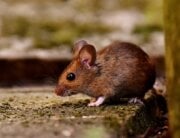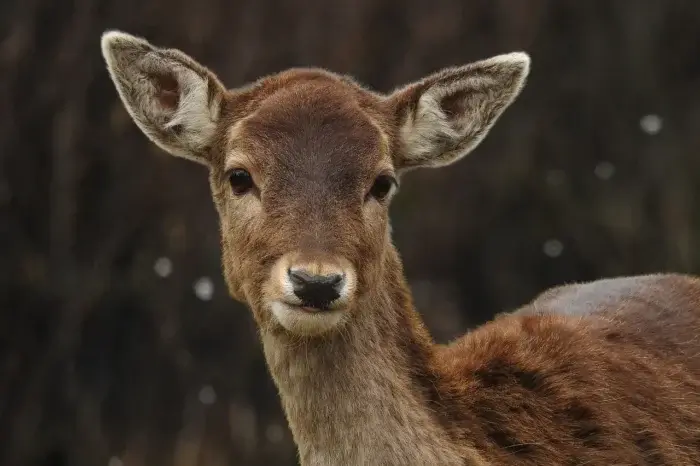
“But ask the animals, and they will teach you ….” Job 12:7
The story of Job encapsulates our need to confront and make sense of suffering. He loses everything, yet he clings to his faith and his unwavering hope for justice. After he cries out to God, the Lord replies with His holy wisdom from “out of the whirlwind.” His lesson plan? Creation!
God instructs Job through a series of questions about the rooster, the lioness, the mountain goat, and other animals in order to illustrate that it isn’t humans’ place to question Him.
Although Job’s story consists of 42 chapters, simply meditating on smaller excerpts reminds us of the larger message—that God knows, loves, and instructs through His creation. Job 12:7–10 is a powerful reminder that we must reframe how we see, think of, and interact with both animals and their creator.

God is invisible. We can’t touch or see Him, but we can touch and see His creation, which He uses in the most fundamental and universal way to reveal His goodness. In every sentient being He creates—including those with fur, feathers, or scales—he displays his glory.
Although God creates out of pure goodness, it’s difficult for humans to make anything without falling into pride and self-absorption, and these quickly lead to a callous disregard for other sentient beings. When God questions Job—and through him, us—about animals, He draws us away from our ignorant arrogance and toward the wisdom of the animal kingdom, reminding us that it was He who so lovingly and thoughtfully created it. We should humbly remember that human creations can’t equal those of God and that only He can make an orca, an ostrich, or a horse: “In His hand is the life of every creature and the breath of all mankind” (Job 12:10).
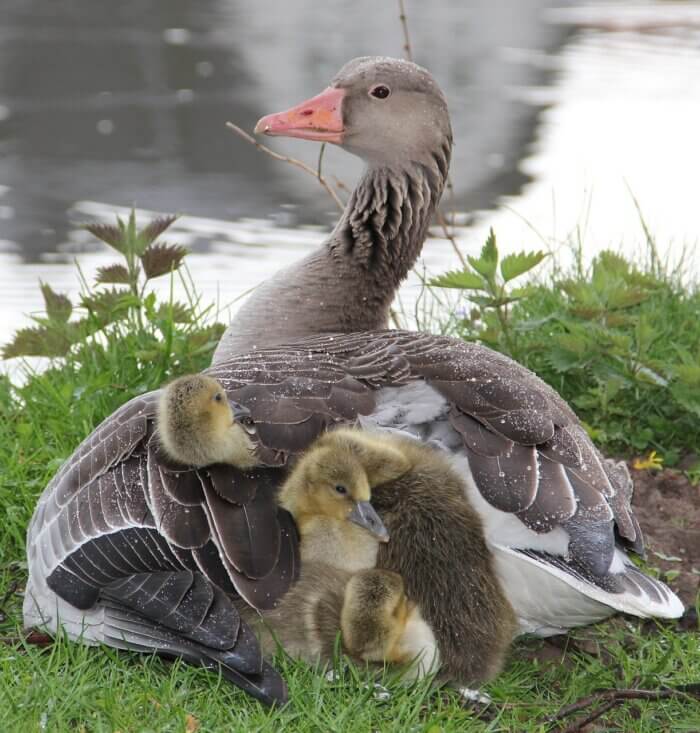
So why do humans, whom God also created, inflict Job-level suffering on billions of animals every day? Horses are relentlessly forced to race, they become injured, and some are killed. Male chicks are tossed like trash into a macerating machine that grinds them up alive because they don’t produce eggs. Pythons are strung upside down, pumped full of air, and skinned alive for a fashionable handbag. These are children of God, too, and part of the animal kingdom we should look to, according to Job 12:7, for instruction—and yet we look away, cover our ears, and abandon them in their time of suffering.
We must continue the good work of advocating for the end of all animal abuse. We must also cry out to God in animals’ behalf, reframing our perspective toward compassion instead of cruelty. Finally, and always, we must meditate on the well-known stories from the Bible, pray for all of creation, and petition the Lord on behalf of “all the birds in the sky,” the “fish in the sea,” and every other sentient being.
The lessons we can learn from animals are a gift from our creator—whose creativity, majesty, and generosity abound. So let’s be apt students who see, hear, and love our animal teachers and pray, “Help me, O Lord, to remember that in your precious hand ‘is the life of every creature,’ and let this perspective guide my actions today and every day.”


